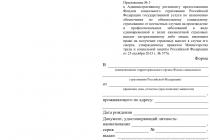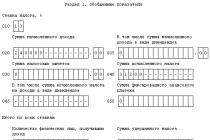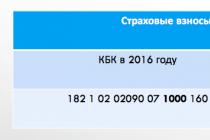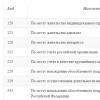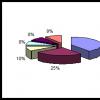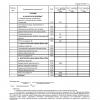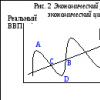If we consider these cards, then in general they are very similar. But there are times when using a Visa Electron card abroad is not so easy. So, in small souvenir shops, at the time of payment, they may ask for a slip card. It is no secret that the name of the owner is not written on the Visa Electron card, and, accordingly, it will not be possible to pay for goods and services with it in this case. Therefore, it is often more convenient to issue a Visa Сlassic card.
Fees for Visa cards abroad
Basically, a commission for using Visa cards abroad is charged in cases where the currency of the card account differs from the currency of the transaction. A significantly larger part of the money will be lost by those who use a Visa card with ruble accounts, for example, in Europe, where they pay in euros.
For example, Sberbank provides a commission of 1.5% for Visa Classic and Visa Electron cardholders. A much lower commission is provided for holders of privileged cards. This is due to the fact that additional fees do not cover the costs of banks for multiple currency conversions. If you are a cardholder with a ruble account, and you want to make a money transaction, for example, in a Mexican store, then the bank will do the following: first it converts Russian rubles into dollars, and only after that the dollars are converted into Mexican pesos. The chain can be much longer, it all depends on the final currency. In simple terms, the bank has additional expenses that are reimbursed by the cardholder.
For Visa cards, the main currency is the US dollar. This means that all monetary transactions related to the conversion will be carried out through this currency.
MasterCard - an alternative payment system
The MasterCard payment system uses the currency, both the dollar and the euro. That is why in Europe it is more profitable to make money transactions with a card of this payment system, since rubles are converted immediately into euros. And in the US, it is more profitable to pay with Visa cards in order to incur minimal conversion costs.
3 advantages of paying by card abroad
Paying with cards in stores abroad is much more profitable than buying currency in your own country, or withdrawing money from ATMs abroad, experts advise. They often have restrictions on the amount of cash dispensed at ATMs. And the commission for cash withdrawal from some banks reaches 6-7%.
Key Benefits:
1. The money you want to withdraw abroad with a plastic card does not need a written declaration when crossing the border.
2. If the card is lost, it is possible to ask the bank for an emergency cash advance or a temporary plastic card.
3. Conversion of funds into the currency of the country in which you are going to stay occurs automatically.
How to avoid losses?
In order to avoid monetary losses during the conversion, it is advisable to have plastic cards of 2 payment systems with you at once, or another good option is to open a multicurrency card. Usually, several accounts are linked to it and the owner can make free money transfers between them using the Internet bank at the rate of a banking institution. The most important thing is to have enough money in the account.
When might a credit card be needed?
Experienced travelers issue credit cards before traveling abroad. And there is a reason for this: a credit card can serve as a backup in the event that cash and funds on a debit card run out. You can apply for an online credit card directly on our website by comparing offers from various banks.
Magazine / 5 rules that will help you save money when paying by card abroad - "The Subtleties of Tourism" share the best secrets. Detailed instructions, important life hacks and everything you need to know about the world of tourism - on the pages of "Subtleties".
It is convenient to pay with "plastic" when traveling. No need to carry a large amount of money with you and run around the exchange offices in search of a favorable rate. But if you use your payroll card as you would at home, you will find that you have spent more than you expected when you arrive. Let's figure out where the overpayment comes from and how to avoid it.
Previous photo 1/ 1 Next photo
When you pay abroad with a plastic card, the terminal request goes a long way. First, information is sent to the bank of the country in which you are located, which, in turn, refers to the payment system, and she - to the Russian branch that issued the card. If the currencies of the check and the card differ, the money is converted in the process, for which an additional fee is charged. When paying with a ruble card in countries where the official currency is not the dollar or the euro, you will lose up to 6% on double conversion.
To save money, order a currency travel card and top it up with small amounts. For trips around Europe, it is more profitable to use MasterCard, for America and other countries of the dollar zone, Visa is better. If the currency of the purchase, card and payment system are the same, you will not lose a penny on commissions. In countries where their own money is in circulation, one exchange operation will be required, and the losses will be less than when paying from a ruble account.
Previous photo 1/ 1 Next photo

If you do not plan to issue a currency card or are traveling to countries where euros or dollars are not in use, it is better to check the commission percentage on the bank's website in advance in order to estimate how much more expensive it will be to rent a car or have lunch in a cafe. Usually the payment system withdraws 1-3% of the amount for this operation.
Previous photo 1/ 1 Next photo

In some countries, when paying by card, the buyer can choose to pay in the currency of the purchase or card. At first glance, everything is simple and convenient. However, under such a caring service, additional commissions are hidden. When making such a purchase, an instant conversion takes place, and the terminal sends a request to its bank in rubles. They are converted into the currency of the country in which the store is located, then into dollars or euros, and again into rubles - already in a Russian bank. Overpayment can reach up to 10%.
Often sellers make purchases in rubles without asking. Ask for a waiver to pay in local currency.
Previous photo 1/ 1 Next photo

When you withdraw money from a foreign ATM, both local and Russian banks will take their percentage. In order not to lose on commissions, it is better to pay by card wherever possible, and take some cash with you just in case. But if you still have to cash out the currency at an ATM, you should immediately withdraw the entire required amount. If you shoot a few times a little, you will lose more.
Even for cards that can be cashed out without commission worldwide, there is usually a limit. If you withdraw less than it, a commission will be charged.
Previous photo 1/ 1 Next photo

24.12.15 592 232 37
Who takes commissions from cards abroad
How and why we are bred
It was in Spain. Oleg withdrew 100 euros from an ATM.
The exchange rate of the Central Bank was 70.14 R per euro. The ATM offered to write off 7682 R - 9.5% more. What the heck?
Konstantin Golubev
traveler
 In his Facebook post, Oleg shares his impressions, how foreigners are swindled in Europe
In his Facebook post, Oleg shares his impressions, how foreigners are swindled in Europe Tourists are bred by all and sundry: hotels, souvenir shops, ATMs, cafes and restaurants, taxi drivers and guides. Each in his own way winds up the exchange rate and charges commissions under exotic pretexts.
In the article, we will analyze when we pay commissions, who profits from tourists and how to return part of the money.
How it all works
Let's say you buy a wonderful leg of jamon in a Spanish store for one hundred euros. Before the trip, it was prudent to make a MasterCard card in euros. Here is what your purchase looks like from the point of view of the banking system:
- The terminal in the store says to his Spanish bank: "I want to write off 100 euros from this guy."
- The Spanish bank says to the Mastercard payment system: “We want to write off 100 euros from this guy.”
- Mastercard looks at what kind of guy you are, finds your native bank, asks him: “Does he have 100 euros? If there is, let's write it down."
- Your home bank replies: “Yes, it seems to be. Written off."
- The payment system responds to the Spanish bank: “Guys, everything is ok, he has money, I’m debiting it.”
- The Spanish bank says to the terminal "Everything is fine, 100 euros have been debited."
- The terminal prints a check for 100 euros.
- You receive a jamon leg.
This is the simplest case: the card is in euros, payments are in euros, the local currency is the euro, no additional conversions.
Currency cards help to pay exactly on the check. In Euro countries, pay by card in Euro. In the USA, Panama, Puerto Rico - in the countries of the dollar zone - by a card in dollars. If the currency of the price and the card match, you will pay one to one.
If the currency of the purchase and the card are the same, there are no commissions and no conversions
If the local currency is not Euro
You finished the jamon, washed down with sherry and decided to watch the sunset on the roof of the Marina Bay Sands Hotel in Singapore. Entrance costs 20 Singapore dollars. Spend the dollar "Visa Classic" through the terminal.

Price in Singaporean currency, card account in US dollars. In order for the banks to understand each other, Visa will change Singaporean money into dollars.

If the local currency is not euro or dollar, try to pay with a dollar card. Payment systems will still change local money into dollars - commissions cannot be avoided.
If the local currency is not EUR or USD, there will be one conversion and one fee
If the card is in rubles
You're wandering around Beijing and stop at Starbucks for a double cappuccino. The barista writes your name on the glass and holds out a check of 30 yuan, you give him a ruble "Visa". How much will you pay?First, the payment system will convert the yuan into dollars. But the card is in rubles. Your bank will change money a second time - it will convert dollars into rubles.
- The Starbucks terminal pings a Chinese bank: "We need to write off 30 yuan."
- The local bank looms to the payment system: "Give us 30 yuan."
- "Visa" changes yuan into dollars: "30 yuan is $4.67."
- For the exchange makes a surcharge. The same 2%. Now the price is $4.76.
- The payment system finds your bank: "Got 4.76 bucks?"
- The Russian bank sees that the card is in rubles and changes money for the second time: “Today the exchange rate is 69 rubles per dollar. I'll write off 328.5 rubles.
- You are drinking coffee.
The price is in yuan, the payment system works in dollars, the card is in rubles - all currencies are different. The money will be changed twice and a commission will be taken.

In Morocco, Thailand, China - wherever local money is not euro or dollar, add 3-6% to the price. Before the trip, check with the bank the tariffs on the card: commission, exchange rate, currency of settlement with the payment system. This way you will find out how much it costs to rent a car or long island in a hotel.
If all currencies are different, the money will be changed twice. Plus take a commission
If the price was shown in rubles
Let's say you're haggling with a souvenir shop, buying a cap like Sherlock Holmes. You hand the card to the owner, he will give you a terminal or a check. In England it looks like this:

In Italy, Turkey, Thailand - in countries popular among tourists - sellers offer instant currency conversion, or DCC (Dynamic Currency Conversion). The terminal recognizes the country of issue of the card and offers to pay for the purchase in the native currency.
The service seems to be convenient, but deceptive. The seller puts a small commission "for convenience" into the check, and the local bank makes an extra conversion. If you choose rubles, overpay up to 10%: it depends on the impudence of the seller and the exchange rate.
- The terminal determines that the card is Russian and offers to write off rubles. Adds a commission to the price.
- The local bank converts rubles into pounds and requests money from the payment system. This is the first conversion.
- "Visa" or "Mastercard" change pounds into dollars and take a surcharge for a cross-border payment - a second currency exchange.
- The Russian bank receives the price in dollars, changes everything into rubles and writes off the money. So the money is converted for the third time.
- A satisfied seller wraps a souvenir.
Banks and payment systems oblige sellers to give buyers a choice of how to pay: either press a button on the terminal or check the checkbox. Without this, the purchase is invalid. Visa advises challenging such payments.

Pay and withdraw money in local currency. If the seller gave a check in rubles, ask for a refusal to pay. Otherwise, overpay for two commissions and a triple exchange of money.
Pay and withdraw money in local currency. Otherwise, you will get a double commission and a triple currency exchange.
If we withdraw cash
You are in Bangkok, going to rent a scooter for 2000 baht. Insert a ruble card into the ATM. According to your calculations, this is no more than 4000 rubles.
You will be upset twice. Firstly, a Thai ATM will withhold 1-2% of the amount or 100-200 baht per operation. Secondly, the native bank may charge a commission for cashing out money in someone else's ATM. Usually 1-2% of the amount or at least 3 € / 3 $ / 150 R.

- The ATM adds a fee of 180 baht. A request for 2180 baht goes to the local bank.
- Bank of Bangkok calls the payment system: "I want money!"
- The payment system changes baht to dollars, adds its commission and asks for money from your bank: "Transfer 61 bucks to Bangkok."
- The Russian bank recalculates the amount in rubles and adds its commission for withdrawing money from a foreign ATM - 150 R.
- R 4360 leaves the account.
If you paid by card, the rent would cost 3900 R - 12% less.

Try to pay by card and withdraw money when necessary. Or get a special travel card. For example, using the Tinkoff Black card, you can withdraw money at any ATM in the world. There is no commission if you withdraw more than 3000 R, 100$ or 100€.
There will be a fee for withdrawing money. Twice
How to return money
Pay with a card with the possibility of cashback. The bank will refund rubles, not miles or bonuses. Usually cashback is equal to one percent. But you can return more.
For example, Tinkoff Bank reimburses 5% for expenses in categories of increased cashback and up to 30% for promotions from partners.
The increased cashback is valid for all purchases on the travel.tinkoff.ru website. You can book a ticket, hotel or car and get your money back before you even start your trip.
conclusions
- Before traveling, call the bank, check the fees on your card. Or get a special travel card.
- Try to pay by card. If the currency of the price and the card is the same, there will be no commission.
- Get a card with the ability to withdraw cash at any ATM in the world without commission.
- Pay and withdraw money in local currency only. If the seller gave an invoice in rubles, ask for a refusal. Do not pay for extra instant money conversion.
- If commissions cannot be avoided, pay with a card with the possibility of cashback. So you will return the interest to the card.
Magician (Hieronymus Bosch)
During my last trip to Mallorca and other islands, several times I came across the fact that when paying with a bank card, they were charged more than necessary. By the way, this scam on withdrawal of funds is quite legal. Although I know about this problem, but European banks tricked me 3 times when paying at Booking, Europcar and Burger King, I tell you how!
4 episodes, 3 of which I lost.
Episode 1. Europcar cheated on €2.51
According to the documents, renting a car for 4 days in Formentera came out to €106.86, and they charged me €109.37 in terms of euros, that is, €2.51 more than necessary. How so?
Upon receipt of the car, without asking me, $ 500 in dollars was blocked on the card (I took it without SCDW insurance). I signed in the electronic terminal for this transaction. To be honest, I don’t remember in what currency the final amount was displayed. After returning the car, 5 days later, the blocked amount was returned to my ruble credit card. Immediately afterwards, €125.53 was withdrawn. That is, their bank converted euros into dollars for some reason, earning a pretty penny. Then Tinkoff Bank converted dollars into rubles at its own rate, and also earned a pretty penny. The exchange rate of the Central Bank on April 10 is 76.68. As a result, I was charged 8,498₽ = €110.82.
The final overpayment amounted to almost €4.
I always make sure that they are debited in the currency in which they were counted, that is, in euros. I look at checks, through an extract in the Tinkoff application. But here they wrote off without me.
I turned to the Russian support of Europcar - they washed their hands and sent them to Spain. In Spanish, I have not been answered so far, I wrote to different addresses.
I contacted Tinkoff Bank support, they said that I confirmed the first withdrawal of $500, and the second was done in the same currency. That is, they could not help.
Episode 2. Booking cheated by €7
Just don't laugh that we decided to eat burgers. Really, there are very expensive cafes in the city of Ibiza, but I wanted to eat :-) We went into the realm of gluttony and unhealthy food.
The total amount was €14.20. Paid with a euro card. I specifically started a Tinkoff Black card in euros so as not to pay for conversions. I immediately looked into the application, looked at the statement - € 15.15 was withdrawn! I think it is. I saw the write-off in dollars in detail, that is, they wrote off €14.20 → $16.66 → €15.15. Magically, a Spanish bank cheated me by almost €1!
But you can’t fool me, I’m telling you right at the checkout to cancel the transaction and re-write off in euros. For about 5 minutes, all Burgerking were looking for how to write off in euros from an overseas card, but they couldn’t find it. Their Spanish bank hid this option somewhere very deep in the jungle of the terminal menu.
In the end, the payment was canceled and I paid in cash. But there is a continuation of the story!
A week later, they returned the money to me, but less, €14.49 instead of €15.15. The cunning Spanish bank decided to return the amount in dollars to me and recalculate at the new rate. That is, he took €0.66 from me on completely legal grounds.
Imagine what super-profits Spanish banks get out of thin air on millions of transactions of unsuspecting tourists!
Be more careful, connect SMS informing about debits on the card, use the application from the bank to keep track of expenses.
Episode 4
Of course, you know about this, but I will write just in case. When withdrawing money, the ATM sometimes offers to convert the local currency into dollars or rubles at its overvalued rate. Always choose to withdraw in the original currency, and your bank will already convert at a more reasonable rate into rubles.
In this example, the Euronet ATM offers to change €150 → $186.55 when withdrawing to a euro card, and then Tinkoff will once again change dollars to euros and write off anyway in euros. Nonsense huh? But look with what zeal they impose this service on me, one wrong answer and they will write off in dollars. These ATMs are available throughout Europe, Russian is available in the menu, and they do not charge a commission for withdrawal. Through them I withdraw cash euros without commission.
Conclusion
I hope that I have not dissuaded you from using cards abroad. Here €1 will be written off, there €3 will be written off – as a result, it can result in a decent amount. Personally, I almost never pay in cash, it’s more convenient with a card, they accrue various bonuses and then it’s easy to calculate expenses.
The main thing is to look in what currency they are debited before confirming or entering a pin code or painting on a check.
What adventures did you have with bank cards?
Liked? Subscribe to my channels:
telegram,
Instagram,
How do I save on hotels?
Everything is very simple - look not only on booking.com. I prefer the RoomGuru search engine. He searches for discounts simultaneously on Booking and 70 other booking sites.
If you are a holder of a bank card of the popular international payment system Visa or MasterCard, then you can be 99.9% sure that you can pay for it abroad at any point of sale where cards are accepted for payment. But it may turn out that your card is completely unsuitable for paying for purchases abroad due to the unfavorable conversion rate in your bank, the presence of an additional conversion commission and other fees that are not always found in official tariffs.
That is why when planning a vacation or business trip abroad, it is necessary to think over the issues of payment by card in advance. In this article, you will learn how conversion takes place when paying with a bank card abroad, and you will find useful tips and tricks on how to choose the right card so that conversion losses are minimal or completely absent.
Definition of terms
Issuing bank - the bank that issued the bank card.
Acquiring bank - a bank that organizes the processing of card payments at a point of sale (in official banking documents, various stores and services for the provision of various services are usually called trade and service enterprises (TSPs).
For example, with Corn (and many other cards), it is enough to call the hotline and warn about the upcoming trip, and for the Tinkoff card, the dates of the planned trip can be indicated in the Internet bank.
3. Your card must be with a chip (with embossed letters and numbers) and personalized. The chip makes card payments safer, especially since there are fewer and fewer devices in the world that support plastic with a magnetic stripe. An embossed card can, although in rare cases, come in handy if the seller makes a slip (an imprint of embossed bank card details on a check to confirm the operation) on the card. The absence of a first and last name can also be faulted.
4. It is advisable to use a credit card to book hotels, air tickets, railway tickets and other services (for example, car rental). In this case, the amount from the credit limit (in fact, bank loans) will be reserved (hold) on the card as a reservation. It will be possible to pay for the service on the spot with a debit card, after which the reservation will be canceled and the funds on the account will be released and will become available again.
Reserving funds on a credit card IS NOT a waste, so you will not have to pay interest on it. And if you used a debit card for booking, then the booking would make your funds unavailable (albeit temporarily), which can be used for more necessary purposes.
As a payment abroad, you can use both debit and credit cards with equal success, just do not forget about choosing the right one to reduce conversion costs.
5. Always keep a sufficient supply of funds on the card- do not spend the entire balance "under zero" so as not to fall into (unforeseen credit due to debiting the amount from the account more than it had at the time of debiting the funds - for example, due to an increase in the exchange rate at the time the operation was processed).
6. If you are offered to pay for the purchase abroad in your native currency (in rubles), then REFUSE, and insist on paying in the currency of the country where you are located (local currency). The so-called system of instant currency conversion DCC (from English Dynamic Currency Conversion) is in operation. It can be "encountered" in Poland, China, Thailand and some European countries.
The client is offered to carry out the operation in his usual currency (the type of currency is determined by the card number, if specifically, then by the BIN - the identification number of the issuing bank, more about). As a result, exactly the amount in its national currency (in our case, in rubles) will be debited from the client’s card account, which he will see on the terminal screen.
It seems to be convenient - you immediately see the price in rubles and make a decision on payment. In addition, you insure yourself against the risks of paying much more if there is a strong change in the exchange rate at the time of the actual debit from the card.
But as a rule, the fee for the DCC service is much higher than the possible losses for the conversion on the part of the issuing bank, and can reach 5-6%. That is why on all respected banking forums and websites it is recommended to refuse such a service (real reviews to help you - google it yourself). In some cases, for "convenience" you can overpay a not very large amount - 1 or 2%, but if the currency of your card matches the currency of the transaction (for example, dollars), which does not imply any conversion on the part of the issuer, then your losses will be significantly higher.
7. Do not neglect the rules of safe use of the card and modern payment technologies. are the same in any country in the world and it is better to follow them so that your card or its details do not end up in the hands of a fraudster, and it makes sense to say a few words about technologies. It will be good if your card supports PayPass / PayWave () instant contactless payment technologies. When paying, you will use a card to a minimum and not dial a pin code (up to a certain amount) - this is fast and convenient.
Even better, if your bank is able to work with payment services such as Apple Pay, Google Pay, Samsung Pay and others, and your smartphone has an NFC contactless payment chip built into it. When using such services, when paying, the card number and other data are not transmitted - a certain virtual sequence of numbers (token) is transmitted in encrypted form, which is decrypted by the payment system. The use of such technologies () allows you to make payments many times safer than the classic payment by card.
A big plus of the bank is the ability to open online (aka a safe account), where you can store your funds (they will also charge interest for this) and quickly (via a mobile bank) transfer part of the funds to the card. If the card is compromised, the fraudster will not get to your account.
If possible, issue additional cards to the main account and use them, and hide the main card away and do not “shine”. If the bank allows you to set limits on transactions (withdrawals and transfers), then reduce them to reasonable limits so that the card in case of theft does not become a source of large income for the fraudster.
Summing up
After analyzing the provided information, you will be able to more thoughtfully approach the choice of a payment card for payment with its help abroad. It is better to take care of this issue in advance and issue a profitable card for yourself than to bite your elbows later because of wasted thousands, “thanks” to bank commissions and an unfavorable conversion rate.







